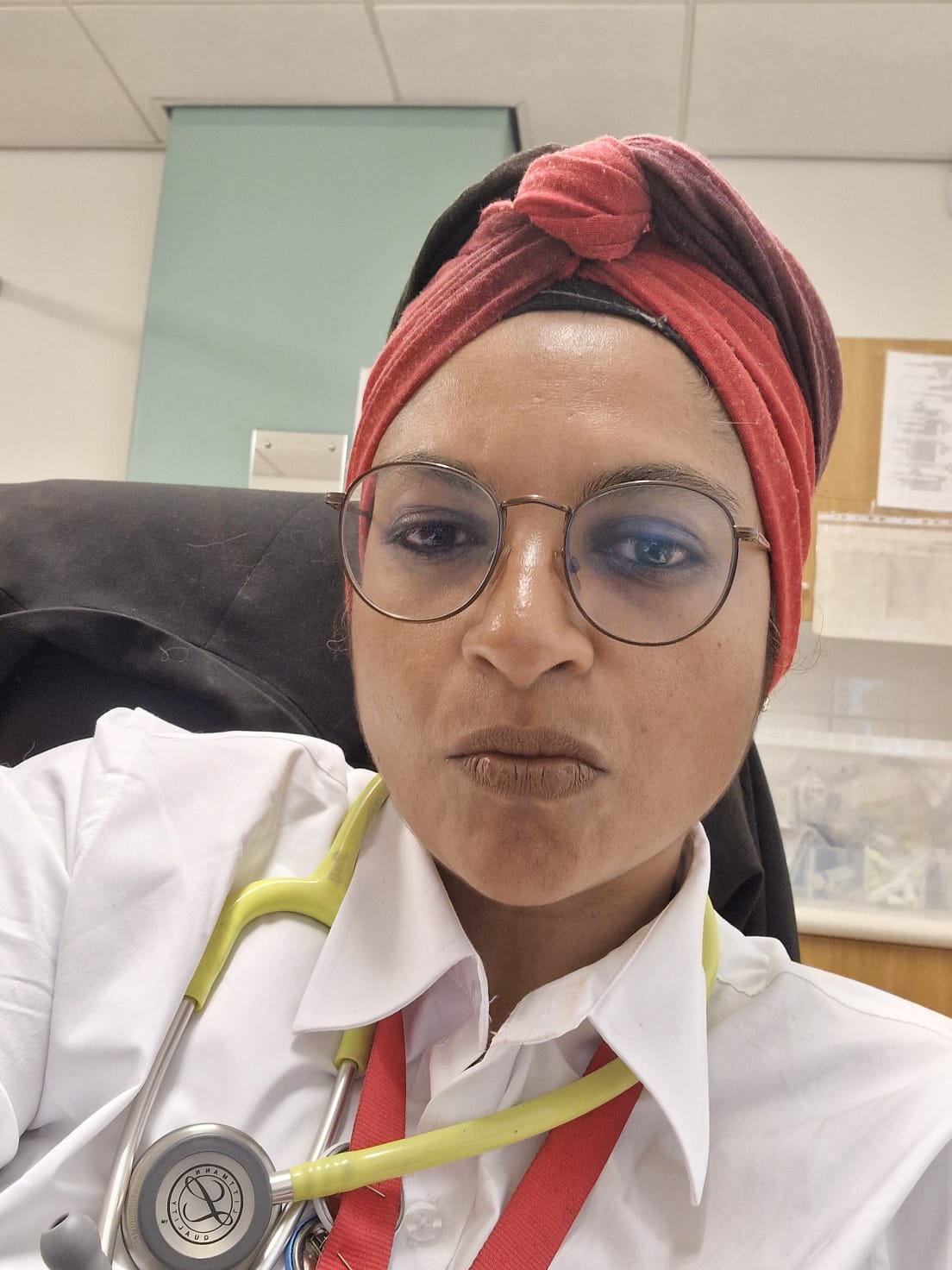Our Doctors

Dr Saj Sarwar
GP Trainer/Mentor/GP Special Interest Cardiology
MBChB (Birmingham 1997) FRCGP PGDipCardiology
About Dr Saj Sarwar
Completed Medical rotation at Postgraduate Level. Has completed the Royal College of General Practitioners. Keen interest in Cardiovascular Medicine, in particular AF, Anticoagulation and Prevention. In particular emphasis on addressing population inequalities and looking at redesign of pathways with up skilling of GPs to address this unmet need.
Responsible for teaching medical students, trainee doctors, registrars and other GPs. Is an accredited Royal College trainer and has been awarded the Fellowship of the Royal College of GPs. Planned Care and Improved Access Lead for the i3 Primary Care Network. Has worked with the West Midlands Academic Science Network to provide lectures on various projects. West Midlands Alliance Cardiovascular Disease Lead.
Has worked with World class leaders in Atrial Fibrillation, to promote Stroke Prevention, this work has been replicated regionally and recognised internationally. Keen on Engagement and Development of Pathways between Primary and Secondary Care, whereby services are improved for patient care and closer working with hospital consultants and teams. A mentor for GPs and trainees as part of the General Practitioners Retention Intensive Support Site (GPRISS).

Dr Sabena Jameel
BMBS (Nottingham 1996). BMedSci. MMedEd. DFSRH. FRCGP. PhD
About Dr Sabena Jameel
Dr Sabena Jameel has been an inner-city GP since 2001. She did her Primary Medical Degree at the University of Nottingham and graduated in 1996. She also has three other degrees (B.Med.Sci (Nottingham)/Masters degree in Medical Education (Warwick) and a PhD from the University of Birmingham). Her PhD looked at Medical Wisdom.
Care, Compassion and an ethical orientation to practice is central to this approach, Dr Jameel aspires to enact this in her daily GP work. Dr Jameel is a committed Medical Educator as part of her portfolio career. Dr Jameel has an interest in family planning and sexual health as well as providing general medical GP consultations.
She has worked at Church Road Surgery since 2006. Dr Jameel is also committed to Lifestyle Medicine approaches appreciating how helpful it can be in preventative medicine and healing. In addition to working at Church Road Surgery, Dr Jameel is a Professor at the University of Birmingham Medical School.
She is also an Independent Advisor to West Midlands Police (Professional Standards Group) and an Academic member of the Royal College of General Practitioner Ethics committee.

Dr Thomas Daniel
MBBS, MRCGP
About Dr Thomas Daniel
Graduated from University of Kerala, India in 1994. Since qualification I have held posts in medical and surgical specialities in Kerala (a State in Southern India) and in the U.K.
I underwent General Practice training in Scotland and West Midlands. General Practice training was completed in 2006 and I joined a Practice in Dudley Borough. I have been a partner in the same Practice for 16 years before I joined Church Road Surgery, Aston in 2022.
Cardiovascular Medicine and Diabetes management are my areas of special interests. I am very proud to be part of a dynamic team at Church Road I enjoy travel and sports.
In addition, I have a wide area of non medical interests varying from archaeogenetics to history to politics and beyond.
Our Nursing Team

Angie Cook
State Registered Nurse

Fatima Abdinur
Healthcare Assistant
Our Practice Team
The practice employs a Practice Manager, Operations Lead, Medical Secretary as well a team of receptionist/administrators to support the patients and practice. We also work closely with our CCG and Primary Care Network Teams.

Practice Management

Nosheen Maqbool
Operations Manager/Admin and Support

Imran Sarwar
Reception Manager

Nenelie Wann
Receptionist / Administrator

Shifa
Receptionist / Administrator

Louise
Receptionist / Administrator

Fatima
Receptionist

Tia
Care-co-ordinator

Rebecca
Medical Secretary
Our Attached Team

Ali
Physician Associate
About Ali
A physician associate is a new healthcare professional who, while not a doctor, works to the medical model and has a skills and knowledge base to deliver holistic care and treatment within the general practice team under defined levels of supervision.
They support doctors in the diagnosis and treatment of patients. Ali works at Church Road every Tuesday and Friday.

Asma
PCN Pharmacist
About Asma
Meet Asma our PCN Pharmacist. She works with the clinicians offering expertise medication reviews and works on Monday and Tuesday.

Sheetal
Physiotherapist
About Sheetal
Sheetal works every Tuesday, she is an experienced physiotherapist who is able to assess, diagnose and treat patients with joint and muscular pain. Please speak to a GP who can do a quick assessment and book you an appointment.

Moneeba
PCN Pharmacist
About Moneeba
Meet Moneeba our PCN Pharmacist. She works with the clinicians offering expertise medication reviews and works on Wednesdays.

Blanche
Midwife
About Blanche
Blanche is an experienced midwife and works at the practice on Tuesdays.

Rozina
Intensive Access to Psychological therapist
About Rozina
Meet Rozina, who works on Thursdays.

Craig
Mental Health Primary Care Liaison
About Craig
Meet Craig, who works on Mondays.

Pam
Health Care Assistant
About Pam
Meet Pam, who works on Thursdays.
Additional Roles
Please note that some of the following roles may not be at the Practice. Speak to a member of staff to find out more
Primary Care Network (PCN) multidisciplinary roles in general practice.
Find out more on each of the PCN multidisciplinary roles below. For more detailed information including job description packs, case studies and career frameworks, go to the Health Education England roles explorer on the Future NHS collaboration platform (login required).